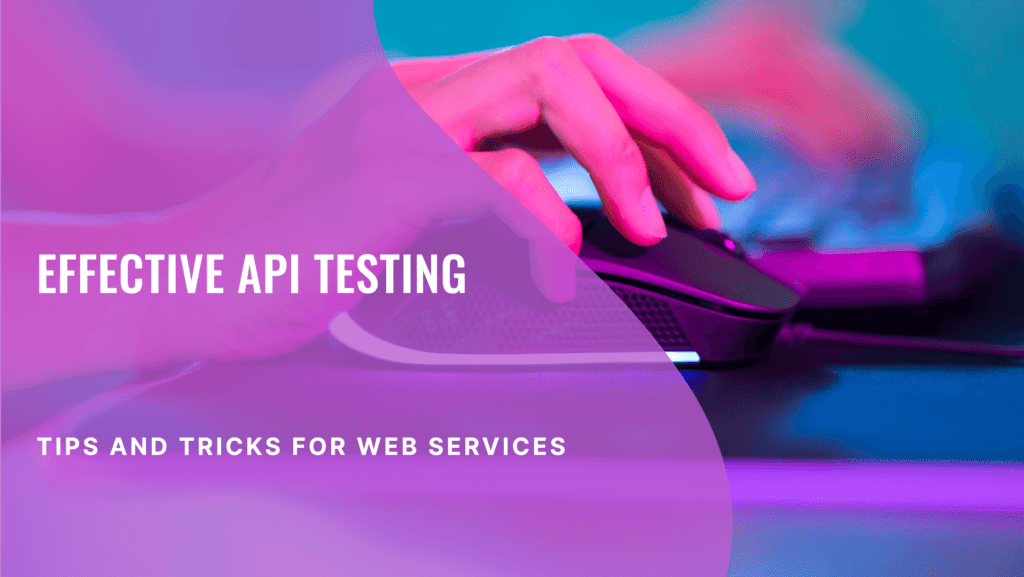Welcome to this month’s “Technology Moment,” where we dive into the latest advancements and insights shaping the tech landscape. Today, we’re shining the spotlight on AWS Cloud Practitioner – the gateway to mastering the cloud with Amazon Web Services. Whether you’re a tech novice or a seasoned IT professional, this certification offers a fundamental understanding of AWS cloud concepts, services, and best practices. Join us as we explore how AWS Cloud Practitioner can elevate your skills, optimize your cloud strategies, and empower you to harness the full potential of cloud technology. Let’s embark on this journey to unlock new opportunities in the ever-evolving world of cloud computing!
What is AWS Cloud Practitioner Certification?
The AWS Cloud Practitioner Certification is an entry-level credential offered by Amazon Web Services (AWS). It is designed for individuals who want to demonstrate a comprehensive understanding of the AWS Cloud, including its core services, security, architecture, pricing, and support. This certification is ideal for beginners who have no prior experience with cloud computing or AWS services.
The AWS Cloud Practitioner Certification is part of a broader AWS Certification program that includes several role-based certifications such as Solutions Architect, Developer, and SysOps Administrator. The Cloud Practitioner Certification serves as a foundational level, preparing candidates for more advanced AWS certifications. It covers essential cloud concepts, AWS services, security, compliance, and the basic architectural principles of AWS Cloud.
Importance of AWS Cloud Practitioner Certification
Achieving the AWS Cloud Practitioner Certification provides numerous benefits, including:
- Validation of Cloud Knowledge: It validates your understanding of basic cloud concepts and how AWS services can be utilized to solve business problems.
- Career Advancement: It can enhance your resume and make you a more attractive candidate for job roles that require knowledge of AWS Cloud.
- Foundation for Advanced Certifications: It provides a solid foundation for pursuing more advanced AWS certifications, which can further boost your career prospects.
- Recognition: Being certified by AWS, a leading cloud service provider, adds credibility and recognition to your skill set.
The certification exam consists of multiple-choice and multiple-response questions that assess your knowledge across various domains, including cloud concepts, AWS services, security, pricing, and support. Preparing for the AWS Cloud Practitioner Certification typically involves studying AWS documentation, taking online courses, and practicing with sample exam questions to ensure you have a thorough understanding of the material.
Table of Contents
Benefits of AWS Cloud Practitioner Certification
The AWS Cloud Practitioner Certification is a foundational-level certification designed to validate one’s overall understanding of the AWS Cloud. Whether you’re a beginner in the field of cloud computing or looking to solidify your knowledge, this certification offers several compelling benefits.
Career Opportunities: One of the most significant benefits of obtaining the AWS Cloud Practitioner Certification is the boost it gives to your career. The demand for cloud computing skills has skyrocketed in recent years, with AWS being a dominant player in the market. Holding this certification can open doors to various job roles such as cloud architect, cloud developer, and cloud operations administrator. Employers often seek individuals with verified AWS skills, and having this certification on your resume makes you a more attractive candidate.
Enhanced Cloud Knowledge: The certification process equips you with a solid understanding of cloud concepts, AWS services, security, architecture, pricing, and support. This foundational knowledge is crucial whether you plan to specialize further or if your role involves cloud-based solutions. By understanding how AWS operates, you can make more informed decisions about deploying and managing cloud services within your organization.
Validation of Skills: The AWS Cloud Practitioner Certification serves as an official validation of your skills and knowledge in cloud computing. This is particularly beneficial for those who are new to the field and want to establish credibility. It demonstrates to employers, clients, and colleagues that you have a grasp of core AWS services and best practices, even if you’re not yet a technical expert.
Competitive Edge: It shows that you are proactive about your professional development and committed to staying current with industry standards. This certification is a testament to your dedication and can give you a competitive edge in job interviews and promotions.
Pathway to Advanced Certifications: The AWS Cloud Practitioner Certification is often the first step in a broader certification journey. It lays the groundwork for more advanced AWS certifications, such as the AWS Certified Solutions Architect, AWS Certified Developer, or AWS Certified SysOps Administrator. By starting with the Cloud Practitioner Certification, you build a strong foundation that can make it easier to tackle more complex certifications down the line.
Practical Application: The knowledge gained from preparing for the AWS Cloud Practitioner Certification is not just theoretical. You learn practical skills that you can apply directly to your job. This includes understanding how to navigate the AWS Management Console, setting up basic cloud infrastructure, and implementing security measures. These practical skills are highly valuable in real-world scenarios.
Increased Earning Potential: The investment in obtaining the certification can pay off significantly through increased earning potential. Employers recognize the value of certified professionals and are willing to offer competitive compensation to attract and retain them.
Networking Opportunities: Being part of the AWS certified community opens up networking opportunities with other professionals in the field. AWS hosts various events, webinars, and forums where you can connect with peers, share knowledge, and stay updated on the latest developments in cloud technology. Networking can lead to new job opportunities, collaborations, and further professional growth.
Access to Exclusive Resources: Certified individuals gain access to AWS’s exclusive resources, including study materials, practice exams, and official AWS events. These resources can help you stay ahead in the rapidly evolving field of cloud computing and continue your professional development.
Veteran Benefits: For veterans, the AWS Cloud Practitioner Certification can be particularly advantageous. AWS offers various benefits for veterans, including training programs and financial assistance for certification exams. This support helps veterans transition into civilian careers with valuable and in-demand cloud computing skills.
AWS Cloud Practitioner Certification Exam Overview
The AWS Cloud Practitioner Certification exam is a foundational-level exam designed to validate an individual’s overall understanding of the AWS Cloud. It is ideal for those looking to build and validate an overall understanding of the AWS Cloud without delving too deeply into technical details. Here’s a detailed breakdown of what you can expect from the exam:
1. Exam Format and Structure
- Type of Questions: The exam consists of multiple-choice and multiple-response questions. Each question offers a set of possible answers, among which you must choose the correct one(s).
- Number of Questions: Typically, the exam includes about 65 questions.
- Duration: This duration is usually sufficient for most candidates to carefully read and answer all questions.
- Delivery Method: The exam can be taken either at a testing center or online with a proctor.
2. Content Domains
The exam content is divided into four domains, each focusing on different aspects of AWS Cloud knowledge:
- Cloud Concepts: This domain accounts for approximately 26% of the exam and covers the fundamental concepts of cloud computing and the AWS Cloud.
- Security and Compliance: Making up around 25% of the exam, this domain focuses on AWS security and compliance concepts, including AWS shared responsibility model, AWS Cloud security, and AWS access management capabilities.
- Technology: This is the largest domain, comprising about 33% of the exam. It covers core AWS services, cloud architecture, and technology use cases. This domain also includes questions about AWS service benefits and best practices.
- Billing and Pricing: The final domain, accounting for 16% of the exam, addresses AWS pricing models, billing and account management, and cost management.
3. Preparation and Study Resources
- AWS Cloud Practitioner Essentials: AWS offers a free online course called AWS Cloud Practitioner Essentials, which covers all exam topics comprehensively.
- AWS Whitepapers: Reading AWS whitepapers on security, architecture, and other relevant topics is highly recommended.
- Practice Exams: Taking practice exams can help you get a feel for the question format and identify areas where you need further study. AWS provides sample questions and practice exams to assist with this.
- Hands-On Labs: Gaining practical experience with AWS services through hands-on labs or a personal AWS account can be invaluable.
4. Registration and Fees
- Exam Registration: You can register for the exam through the AWS Certification account portal. Choose your preferred exam delivery method (in-person or online proctored) during registration.
- Exam Fee: The exam costs $100 USD. AWS sometimes offers discounts or vouchers, particularly through training partners or during specific promotional periods.
5. Exam Day Tips
- Time Management: Keep an eye on the time, ensuring you pace yourself to answer all questions within the allotted 90 minutes.
- Read Questions Carefully: Pay close attention to each question and the possible answers. Multiple-response questions can be tricky, so ensure you select all correct answers.
- Stay Calm: If you encounter difficult questions, stay calm and mark them for review if unsure.
Study Resources for AWS Cloud Practitioner Certification
When preparing for the AWS Cloud Practitioner Certification, having the right study resources can make a significant difference in your success. Here’s a detailed guide to help you gather the best materials and utilize them effectively:

Official AWS Training and Certification
- AWS Cloud Practitioner Essentials: This is a foundational course offered by AWS that covers the core concepts of AWS Cloud. It’s designed specifically for those preparing for the AWS Cloud Practitioner exam.
- AWS Training and Certification Portal: The official AWS portal provides a range of training resources, including digital courses, classroom training, and webinars. These resources are curated by AWS experts and are aligned with the certification exam objectives.
AWS Whitepapers and Documentation
- AWS Whitepapers: AWS offers a wealth of whitepapers that provide in-depth information on various AWS services, best practices, and architectural considerations. Some key whitepapers for the Cloud Practitioner exam include the AWS Well-Architected Framework, Security Best Practices, and the Overview of Amazon Web Services.
- AWS Documentation: The official AWS documentation is a comprehensive resource for understanding the functionalities and use cases of different AWS services. It’s an excellent reference for detailed explanations and technical insights.
AWS Free Tier
- Hands-on Experience: You can experiment with services like EC2, S3, RDS, and more without incurring costs, which helps reinforce theoretical knowledge with real-world application.
Online Learning Platforms
- Udemy: Platforms like Udemy offer courses specifically tailored for the AWS Cloud Practitioner Certification. Look for courses by certified AWS professionals with high ratings and positive reviews.
- Coursera and edX: These platforms also offer comprehensive courses on AWS fundamentals. Some courses are developed in partnership with AWS and provide a structured learning path with flexible schedules.
Books and eBooks
- “AWS Certified Cloud Practitioner Study Guide”: Books dedicated to the AWS Cloud Practitioner exam are available from various authors and publishers. These guides often include practice questions, detailed explanations, and study tips.
- eBooks and Kindle Editions: Digital versions of study guides can be convenient for on-the-go learning. They often come with additional resources like downloadable practice tests and flashcards.
Practice Exams and Sample Questions
- AWS Practice Exams: AWS offers official practice exams that simulate the actual certification test environment. These practice exams help you get familiar with the question format and identify areas where you need improvement.
- Third-Party Practice Tests: Websites like Whizlabs, TestPrep, and Tutorials Dojo provide extensive sets of practice questions and full-length mock exams. These resources are useful for benchmarking your preparation and building confidence.
Study Groups and Online Communities
- AWS Community Forums: Joining AWS forums and discussion groups can provide valuable insights and tips from fellow learners and AWS professionals. It’s a great way to get your questions answered and learn from others’ experiences.
- LinkedIn Groups and Reddit: Online platforms like LinkedIn and Reddit have active AWS communities where you can participate in discussions, find study partners, and stay updated with the latest exam trends and study materials.
Flashcards and Quick Reference Guides
- Digital Flashcards: Tools like Anki and Quizlet offer pre-made flashcards on AWS concepts. These are useful for quick reviews and memorizing key terms and definitions.
- Quick Reference Guides: Printable reference sheets and cheat sheets can be handy for quick revisions. These guides condense important information into a concise format, making them easy to review.
AWS Cloud Practitioner Certification for Veterans
The AWS Cloud Practitioner Certification offers a valuable opportunity for veterans to leverage their skills and experiences in a new and growing field. Here’s why this certification is particularly beneficial for veterans:
Alignment with Military Skills:
- Leadership and Discipline: Veterans often possess strong leadership and discipline skills, which are highly valued in the tech industry. The AWS Cloud Practitioner Certification can help veterans apply these skills in a structured and systematic way, making them suitable for various roles in cloud computing.
- Technical Aptitude: Many veterans have technical training and experience, whether in IT, engineering, or other technical roles. The AWS certification builds on this foundation, allowing veterans to transition smoothly into cloud-related positions.
Financial Assistance and Benefits:
- Veteran Affairs (VA) Education Benefits: Veterans may be eligible for VA education benefits, such as the GI Bill, which can cover the costs associated with obtaining the AWS Cloud Practitioner Certification. This financial support can significantly reduce the burden of continuing education.
- Scholarships and Grants: AWS offers various scholarships and grants specifically for veterans. These programs are designed to make certification more accessible and affordable, providing veterans with the resources they need to succeed.
Career Transition Support:
- AWS Training and Certification Programs: AWS provides tailored training and certification programs for veterans. These programs often include mentorship, career counseling, and job placement services, helping veterans navigate the transition to civilian careers.
- Partnerships with Veteran Organizations: AWS collaborates with numerous veteran organizations to offer additional support and resources. These partnerships ensure that veterans have access to a robust network of support, enhancing their chances of securing employment in the cloud computing sector.
High Demand for Cloud Skills:
- Growing Job Market: The demand for cloud computing professionals is rapidly increasing. By obtaining the AWS Cloud Practitioner Certification, veterans position themselves as competitive candidates in a high-demand job market.
- Diverse Career Opportunities: Cloud computing offers a wide range of career paths, from cloud architecture and engineering to cybersecurity and data analysis. This diversity allows veterans to choose roles that align with their interests and strengths.
Practical Experience and Hands-On Learning:
Practice Exams and Preparation Resources: AWS provides various practice exams and preparation resources to help veterans succeed. These resources ensure that veterans are well-prepared to pass the certification exam and apply their knowledge effectively in the workplace.
Hands-On Labs and Real-World Scenarios: AWS certification programs emphasize hands-on learning, allowing veterans to gain practical experience with AWS services and solutions. This approach helps veterans build confidence and competence in applying their skills in real-world scenarios.
AWS Cloud Computing Basics
The technology known as “cloud computing” makes it possible to supply computer services, such as servers, storage, databases, networking, software, and analytics, over the internet (also known as “the cloud”). It offers economies of scale, flexible resources, and quicker innovation. Businesses can leverage cloud computing to store and process large amounts of data, run applications, and manage infrastructure efficiently.
Understanding AWS Cloud Infrastructure
Amazon Web Services (AWS) is a comprehensive cloud computing platform that provides a wide range of services to help organizations build and scale applications efficiently. To understand AWS cloud infrastructure, it’s essential to grasp the following concepts:
AWS Regions and Availability Zones
AWS is divided into multiple regions worldwide, each consisting of multiple, isolated locations known as Availability Zones (AZs). These regions and AZs ensure high availability, fault tolerance, and low latency. By distributing resources across different regions and AZs, AWS provides resilience against failures and disasters.
AWS Services Overview
AWS offers over 200 fully-featured services, covering various aspects of cloud computing, including compute, storage, databases, networking, analytics, machine learning, security, and more. These services are designed to work together seamlessly, allowing businesses to build scalable and secure applications.
Core AWS Services
To get started with AWS cloud computing, it’s crucial to understand some of the core services:
Compute Services (EC2, Lambda)
- Elastic Compute Cloud (EC2) from Amazon: EC2 offers cloud computing capacity that is scalable. It allows users to launch virtual servers, known as instances, to run applications. EC2 offers flexibility in choosing instance types, storage options, and networking configurations.
- AWS Lambda: Lambda is a serverless compute service offered by AWS that executes code in reaction to events. It automatically manages the underlying infrastructure, scaling up or down as needed. Lambda is ideal for building event-driven applications and microservices.
Storage Services (S3, EBS)
- Amazon S3 (Simple Storage Service): S3 is an object storage service that provides scalable and durable storage for data. It is designed for storing and retrieving any amount of data from anywhere on the web. S3 is commonly used for backup and restore, data archiving, and content distribution.
- Amazon EBS (Elastic Block Store): EBS provides block-level storage volumes for use with EC2 instances. It offers high performance and availability, making it suitable for applications requiring persistent storage.
Networking Services (VPC, Route 53)
- Amazon VPC (Virtual Private Cloud): VPC allows users to create isolated networks within the AWS cloud. It provides control over network configuration, including IP address ranges, subnets, route tables, and network gateways. VPC enhances security and enables the creation of hybrid cloud environments.
- Amazon Route 53: One scalable Domain Name System (DNS) web service is Amazon Route 53. It routes end-user requests to infrastructure running in AWS, such as EC2 instances or S3 buckets. Route 53 also supports domain registration and health checking.
Security in AWS Cloud
Security is a critical aspect of cloud computing, and AWS implements robust security measures to protect data and applications:
Shared Responsibility Model
AWS follows a shared responsibility model where AWS is responsible for the security of the cloud (infrastructure, hardware, software, and networking), while customers are responsible for security in the cloud (data, applications, and identity management).
Security Services (IAM, KMS, Shield)
- AWS IAM (Identity and Access Management): IAM allows users to manage access to AWS resources securely. It enables the creation of users, groups, and roles, and provides fine-grained permissions to control access.
- AWS KMS (Key Management Service): KMS helps users create and manage cryptographic keys for data encryption. It ensures secure key storage and usage, protecting sensitive information.
- AWS Shield: Shield is a managed Distributed Denial of Service (DDoS) protection service that safeguards applications running on AWS. It provides advanced threat detection and mitigation to ensure high availability and performance.
Cost Management in AWS
Effective cost management is crucial for optimizing cloud expenditures:
Pricing Models
AWS provides a range of price options, such as spot instances, reserved instances, and pay-as-you-go. These models provide flexibility in choosing the most cost-effective option based on usage patterns and requirements.
Cost Management Tools
AWS provides tools like AWS Cost Explorer, AWS Budgets, and AWS Trusted Advisor to help users monitor and manage their cloud costs. These tools offer insights into spending patterns, identify cost-saving opportunities, and provide recommendations for optimizing resources.
Core Services in AWS Cloud
The AWS Cloud Practitioner Certification aims to provide a fundamental understanding of the AWS Cloud. One of the key areas of focus is the core services offered by AWS. These core services form the backbone of AWS’s offerings, enabling businesses to leverage the cloud for a wide range of applications. Let’s delve into these core services in detail:
1. Compute Services
Amazon EC2 (Elastic Compute Cloud): Elastic Compute Cloud, or Amazon EC2, offers cloud computing capability that may be scaled up or down. You can start virtual servers, set up networking and security, and control storage with EC2. EC2 instances can be scaled up or down based on demand, offering flexibility and cost savings.
AWS Lambda: AWS Lambda is a serverless compute service that runs code in response to events and automatically manages the compute resources required by that code. It allows you to execute backend code without provisioning or managing servers, making it ideal for applications that need to scale quickly.
Amazon ECS (Elastic Container Service): Elastic Container Service, sometimes known as Amazon ECS, is a completely managed container orchestration solution. On a cluster of Amazon EC2 instances, it enables you to run and manage Docker containers. Containerized application deployment, management, and scaling are made easier using ECS.
2. Storage Services
Amazon S3 (Simple Storage Service): Amazon S3 provides object storage with a simple web service interface to store and retrieve any amount of data from anywhere on the web. It offers high durability, availability, and scalability, making it ideal for data storage, backup, and archiving.
Amazon EBS (Elastic Block Store): Block-level storage volumes are offered by Amazon EBS (Elastic Block Store) for usage with EC2 instances. These volumes can be used for primary storage of data that requires frequent updates, such as databases and file systems.
Amazon Glacier: Amazon Glacier is a low-cost cloud storage service for data archiving and long-term backup. It is designed to provide secure and durable storage at a very low cost.
3. Database Services
Amazon RDS (Relational Database Service): Relational databases may be easily set up, run, and scaled in the cloud with Amazon RDS (Relational Database Service). Multiple database engines, such as MySQL, PostgreSQL, MariaDB, Oracle, and SQL Server, are supported by it. RDS automates tasks like backups, patch management, and database scaling.
Amazon DynamoDB: For all applications requiring reliable, single-digit millisecond latency at any scale, Amazon DynamoDB is a quick and adaptable NoSQL database service. It provides in-memory caching, backup and restore, and built-in security.
Amazon Aurora: Amazon Aurora is a MySQL and PostgreSQL-compatible relational database built for the cloud, combining the performance and availability of high-end commercial databases with the simplicity and cost-effectiveness of open-source databases.
4. Networking Services
Amazon VPC (Virtual Private Cloud): Amazon VPC lets you provision a logically isolated section of the AWS cloud where you can launch AWS resources in a virtual network that you define. It gives you control over your virtual networking environment, including selecting your own IP address range, creating subnets, and configuring route tables and network gateways.
Amazon Route 53: A scalable and highly available Domain Name System (DNS) web service is Amazon Route 53. It is designed to route end-user requests to internet applications running on AWS or elsewhere.
AWS Direct Connect: This service facilitates the creation of a dedicated network link between your location and AWS. Compared to internet-based connections, this can save network expenses, boost bandwidth throughput, and offer a more reliable network experience.
5. Security, Identity, and Compliance
AWS IAM (Identity and Access Management): Using AWS IAM (Identity and Access Management), you can securely control who has access to AWS resources and services. AWS users and groups can be created and managed with IAM, and permissions can be used to provide or restrict access to AWS resources.
AWS Shield: AWS Shield is a managed service for preventing Distributed Denial of Service (DDoS) attacks against web applications hosted on AWS. It provides always-on detection and automatic inline mitigations to minimize application downtime and latency.
Key Management Service (AMSKMS): This managed service from Amazon makes it simple to generate and manage the encryption keys that are needed to protect your data. It integrates with many other AWS services to help you protect your data at rest and in transit.
6. Management and Governance
AWS CloudTrail: This tool allows you to audit your AWS account for risk, operations, and governance. Events that are logged in CloudTrail are actions performed by a role, user, or AWS service.
AWS CloudWatch: Designed for DevOps engineers, developers, site reliability engineers (SREs), and IT managers, AWS CloudWatch is a monitoring and observability service. In order to monitor applications, comprehend and react to changes in system performance, optimize resource usage, and obtain a cohesive picture of operational health, CloudWatch offers data and actionable insights.
AWS Config: This tool gives you a thorough overview of how your AWS account’s resources are configured. You can examine how the configurations and relationships evolve over time by looking at the historical configurations of the resources as well as their relationships with one another.
Exploring AWS Cloud Practitioner Career Path

Entry-Level Positions
Starting your career as an AWS Cloud Practitioner opens the door to various entry-level positions. These roles typically include titles like Cloud Support Associate, Cloud Solutions Architect, and Junior Cloud Engineer. As an entry-level professional, you will engage in basic cloud operations, manage AWS services, and provide support to organizations leveraging AWS infrastructure. The certification ensures you have a fundamental understanding of AWS cloud concepts, which is crucial for these positions.
Mid-Level Positions
As you gain experience, you can transition into mid-level positions such as Cloud Engineer, Solutions Architect, or DevOps Engineer. These roles involve more complex tasks, including designing and implementing AWS cloud solutions, optimizing performance, and ensuring security compliance. The AWS Cloud Practitioner certification provides a solid foundation, but additional certifications and hands-on experience are often necessary to excel in these roles.
Advanced Roles
Advanced roles, such as Senior Cloud Architect, Cloud Consultant, or Cloud Project Manager, require extensive experience and deep expertise in AWS services. In these positions, you’ll lead large-scale cloud projects, develop comprehensive cloud strategies, and manage cross-functional teams. The AWS Cloud Practitioner certification is a stepping stone, but continuous learning and additional certifications (e.g., AWS Solutions Architect Professional) are essential for reaching these advanced career levels.
Salary Expectations
The salary for AWS Cloud Practitioners varies based on experience, location, and specific job role. Entry-level positions typically offer competitive starting salaries, ranging from $60,000 to $80,000 annually. As you move to mid-level roles, salaries can range from $90,000 to $120,000. Advanced positions often command salaries upwards of $150,000, reflecting the high demand for skilled cloud professionals.
Skill Development and Continuing Education
The technology landscape is ever-evolving, making continuous education crucial. AWS offers a variety of advanced certifications and specialized training programs to help you stay current. Investing in further education, such as AWS Solutions Architect, DevOps Engineer, or Security Speciality certifications, can significantly enhance your career prospects and ensure you remain competitive in the job market.
Industry Demand
The demand for AWS-certified professionals is soaring as more businesses migrate to the cloud. Industries ranging from finance and healthcare to entertainment and retail seek AWS Cloud Practitioners to optimize their cloud infrastructure. This high demand translates into ample job opportunities and career stability for those holding AWS certifications. Moreover, the continuous growth of AWS ensures long-term career prospects for certified professionals.
Comparing AWS Cloud Certification Levels
When diving into AWS certifications, it’s crucial to understand the differences between the various levels available. AWS offers a range of certifications designed to validate different skill sets and expertise in cloud computing. Each certification serves a unique purpose and targets different professional goals. Let’s break down the primary AWS certification levels and compare them to give you a clearer picture.
1. AWS Certified Cloud Practitioner
The AWS Certified Cloud Practitioner is the entry-level certification designed for individuals who are new to the cloud or AWS. It provides a foundational understanding of AWS cloud services and basic cloud concepts. Here are some key aspects:
- Scope: This certification covers fundamental AWS services, billing, pricing, and the AWS Cloud’s value proposition. It’s ideal for those who need a broad understanding of AWS without delving deeply into technical specifics.
- Audience: It’s aimed at individuals in non-technical roles, such as sales or management professionals, who need to understand AWS from a high-level perspective.
- Pre-requisites: There are no formal prerequisites, though a basic understanding of IT services and cloud computing is beneficial.
- Exam Format: The exam consists of multiple-choice and multiple-answer questions, focusing on fundamental AWS concepts and services.
2. AWS Certified Solutions Architect – Associate
This certification is more technical than the Cloud Practitioner certification and is aimed at individuals who design and deploy applications on AWS. Here’s what you need to know:
- Scope: It covers architectural best practices, AWS services, and solutions to design distributed systems. It dives into the technical aspects of deploying and managing AWS applications.
- Audience: Ideal for solutions architects, engineers, and anyone involved in designing cloud architectures.
- Pre-requisites: While not mandatory, AWS recommends having some hands-on experience with AWS services and understanding cloud computing concepts.
- Exam Format: The exam includes scenario-based questions, requiring a deeper understanding of AWS architectural best practices.
3. AWS Certified Developer – Associate
This certification focuses on the development side of AWS and is tailored for individuals who develop applications on AWS. Key points include:
- Scope: It emphasizes writing code for AWS services, understanding core AWS services, and implementing AWS security best practices in development.
- Audience: Best suited for developers and programmers working with AWS cloud applications.
- Pre-requisites: Prior experience in coding and familiarity with AWS services are recommended.
- Exam Format: The exam tests practical skills through scenario-based questions related to coding and application development.
4. AWS Certified SysOps Administrator – Associate
This certification is designed for system administrators who manage and operate AWS systems. Here’s a breakdown:
- Scope: It covers deployment, management, and operations of AWS systems, including monitoring, automation, and security.
- Audience: System administrators, operations engineers, and IT professionals responsible for AWS operations.
- Pre-requisites: Hands-on experience with AWS and knowledge of system administration are beneficial.
- Exam Format: The exam focuses on practical scenarios and problem-solving related to AWS system operations.
5. AWS Certified Solutions Architect – Professional
This is an advanced certification for experienced architects who design complex solutions on AWS. Key aspects are:
- Scope: It delves into advanced architecture concepts, such as high availability, disaster recovery, and large-scale data migrations.
- Audience: Experienced solutions architects who need to demonstrate advanced technical skills.
- Pre-requisites: AWS recommends having the Solutions Architect – Associate certification and substantial hands-on experience.
- Exam Format: The exam consists of complex scenario-based questions requiring extensive knowledge and experience.
6. AWS Certified DevOps Engineer – Professional
Focused on advanced DevOps practices, this certification is for professionals who design and manage complex DevOps processes on AWS. Here’s what you need to know:
- Scope: It covers continuous integration, continuous delivery, monitoring, and automation of AWS services.
- Audience: DevOps engineers and professionals who need to showcase their skills in managing DevOps processes.
- Pre-requisites: AWS suggests having the Developer – Associate or SysOps Administrator – Associate certification and practical DevOps experience.
- Exam Format: The exam tests in-depth knowledge of DevOps practices through complex scenarios and problem-solving questions.
7. AWS Certified Specialty Certifications
These certifications focus on specific areas such as security, networking, databases, and machine learning. They include:
- AWS Certified Security – Specialty
- AWS Certified Advanced Networking – Specialty
- AWS Certified Big Data – Specialty
- AWS Certified Machine Learning – Specialty
Each of these specialty certifications requires in-depth knowledge and expertise in their respective fields, catering to professionals seeking to validate their specialized skills.
Tips for Maintaining AWS Certification
Maintaining your AWS certification is crucial to ensure that your skills and knowledge remain up-to-date with the evolving cloud landscape. Here’s a detailed guide on how to keep your AWS certification active and relevant:
1. Understand the Recertification Policy
AWS certifications are valid for three years. To maintain your certification, you must pass the current version of the exam or take the recertification exam before your certification expires. Familiarize yourself with the recertification policy and timelines provided by AWS to avoid any lapses in certification.
2. Engage in Continuous Learning
AWS continuously updates its services and features. To stay current:
- Follow AWS Blogs and Updates: Regularly read AWS blogs and announcements to keep track of new services and features.
- Participate in AWS Webinars and Events: Engage in webinars, workshops, and AWS events to gain insights into the latest developments and best practices.
- Utilize AWS Training Resources: AWS offers online training, webinars, and educational resources. Take advantage of these to stay informed about new tools and technologies.
3. Use AWS Documentation and Whitepapers
AWS provides comprehensive documentation and whitepapers that cover new features, best practices, and architecture patterns. Regularly review these resources to deepen your understanding and stay updated on AWS’s evolving technologies.
4. Practice with Hands-On Labs
Practical experience is vital. Use hands-on labs and AWS Free Tier services to practice and experiment with new features. Building real-world applications or conducting small projects can help reinforce your knowledge and keep your skills sharp.
5. Join AWS User Groups and Forums
Connecting with other AWS professionals through user groups and forums can provide valuable insights and tips. Engaging in discussions, sharing experiences, and learning from others can help you stay current and understand practical applications of AWS services.
6. Review and Reassess Your Skills Regularly
Regularly evaluate your knowledge and skills against the AWS certification exam guides and skill benchmarks. Self-assessment quizzes and practice exams can help identify areas where you need improvement and ensure you are prepared for recertification.
7. Enroll in Advanced Training Courses
Consider taking advanced or specialized AWS training courses to expand your knowledge beyond the basics. This can also help you prepare for more advanced certifications and keep your expertise relevant as AWS technologies evolve.
8. Stay Informed About Changes in AWS Certification Exams
AWS occasionally updates its certification exams to reflect new technologies and practices. Keep an eye on any changes to the exam content outline or format, and adjust your study and preparation strategies accordingly.
9. Network with Certified Professionals
Engage with other AWS-certified professionals through LinkedIn, conferences, or local meetups. Networking can provide insights into industry trends, new tools, and practical applications, helping you stay ahead in the field.
10. Set Personal Learning Goals
Establish goals for your ongoing learning and certification maintenance. Setting specific, measurable, achievable, relevant, and time-bound (SMART) goals can help you stay focused and motivated in keeping your AWS skills up-to-date.
Common Challenges and How to Overcome Them
The path to achieving AWS Cloud Practitioner certification is rewarding, but it comes with its share of challenges. Understanding these common hurdles and knowing how to navigate them can significantly improve your chances of success. Here’s a detailed look at these challenges and strategies for overcoming them:

1. Understanding the Exam Content
Challenge: One of the biggest obstacles for candidates is grasping the broad range of topics covered in the AWS Cloud Practitioner exam. The exam tests knowledge across various AWS services, cloud concepts, and AWS security best practices, which can be overwhelming.
Solution: To tackle this, start by reviewing the official AWS exam guide and curriculum. Break down the study material into manageable sections and use a variety of resources, such as AWS’s own training courses, online tutorials, and practice exams. Creating a study plan with specific goals and timelines can also help you systematically cover all topics.
2. Keeping Up with AWS Updates
Challenge: AWS is constantly evolving, with frequent updates and new services being introduced. This rapid pace of change can make it difficult to stay current with the latest information required for the exam.
Solution: Regularly check AWS announcements and updates. Follow AWS blogs, subscribe to newsletters, and engage with AWS community forums to stay informed. Many study resources and training courses are updated regularly to reflect the latest changes, so using these updated materials can ensure that your knowledge remains current.
3. Practical Experience with AWS
Challenge: The exam tests not only theoretical knowledge but also practical understanding of AWS services. Without hands-on experience, it can be challenging to grasp how AWS services work in real-world scenarios.
Solution: Gain practical experience by using the AWS Free Tier to explore and experiment with various services. Set up small projects or follow along with online labs and exercises to apply what you’ve learned. Practical experience will help reinforce theoretical concepts and prepare you for scenario-based questions on the exam.
4. Test Anxiety and Exam Strategy
Challenge: Test anxiety can be a significant barrier, affecting performance during the actual exam. Additionally, not having a well-thought-out exam strategy can lead to wasted time and missed questions.
Solution: Practice with mock exams to familiarize yourself with the exam format and question types. This practice will help build confidence and reduce anxiety. Develop a time management strategy for the exam, such as allocating specific time limits for each question and moving on if you’re stuck. Review and practice relaxation techniques to manage stress.
5. Access to Quality Study Materials
Challenge: Finding high-quality, relevant study materials can be challenging, as not all resources are created equal. Some might be outdated or not aligned with the exam objectives.
Solution: Use reputable sources for study materials, such as official AWS training resources, well-reviewed online courses, and books specifically designed for the AWS Cloud Practitioner exam. Look for materials that are frequently updated and have positive feedback from past candidates. Supplement your study with practice exams and quizzes to test your knowledge and identify areas for improvement.
6. Balancing Study Time with Other Responsibilities
Challenge: Many candidates juggle studying for the AWS Cloud Practitioner certification with work, family, and other commitments. Finding sufficient time to study can be difficult.
Solution: Create a study schedule that fits into your existing routine. Allocate specific times for studying each week and stick to them as consistently as possible. Use productivity techniques, like the Pomodoro Technique, to make the most of your study sessions. Setting small, achievable goals can help maintain motivation and track progress.
7. Understanding AWS Pricing and Billing
Challenge: AWS pricing and billing concepts can be complex, and many candidates find it challenging to understand the various pricing models and cost management strategies.
Solution: Focus on learning the key aspects of AWS pricing, such as the different pricing models (on-demand, reserved, and spot instances) and cost management tools available within AWS. Use AWS’s pricing calculators and explore AWS’s cost management documentation to gain a clearer understanding. Practical exercises and case studies can also help clarify these concepts.
Conclusion
In the conclusion of an article on AWS Cloud Practitioner Certification, you would aim to summarize the key points discussed throughout the piece and provide a final perspective on the topic. The conclusion should:
Briefly review the main aspects covered in the article. This includes the importance of the AWS Cloud Practitioner Certification, the benefits it offers, and how it can impact one’s career in cloud computing.
Emphasize the advantages of obtaining the certification, such as improved job prospects, a deeper understanding of cloud technologies, and the potential for career advancement.
Motivate readers to take the next step, whether that’s enrolling in a certification course, taking a practice exam, or exploring additional resources related to AWS cloud computing.
Suggest specific actions readers can take to further their knowledge or career, such as visiting AWS’s official website, joining relevant study groups, or considering advanced certifications.
FAQs – Frequently Asked Questions
What is the AWS Cloud Practitioner Certification?
The AWS Cloud Practitioner Certification is an entry-level certification provided by Amazon Web Services (AWS) that validates an individual’s overall understanding of the AWS Cloud. It covers the fundamental concepts of cloud computing, AWS services, pricing, and security. This certification is ideal for those new to the cloud or those who need a foundational knowledge of AWS without going into deep technical details.
Why should I pursue the AWS Cloud Practitioner Certification?
Pursuing the AWS Cloud Practitioner Certification offers several benefits. It provides a solid foundation in AWS Cloud fundamentals, which can be advantageous for various roles in IT and business. This certification can enhance your resume, open up career opportunities, and serve as a stepping stone to more advanced AWS certifications. Additionally, it helps you understand how cloud computing can benefit your organization or career.
How can I prepare for the AWS Cloud Practitioner exam?
Preparing for the AWS Cloud Practitioner exam involves several steps. Start by studying AWS’s official resources, such as their training courses and whitepapers. Utilize practice exams to gauge your understanding and identify areas needing improvement. AWS also offers online courses and study guides. Engaging in hands-on practice with AWS services can reinforce your learning and help you become more comfortable with the platform.
In what subjects does the AWS Cloud Practitioner exam cover?
- Cloud Concepts: Basic understanding of cloud computing and AWS services.
- AWS Core Services: Knowledge of the core AWS services, such as EC2, S3, and RDS.
- Security and Compliance: Understanding AWS security and compliance measures.
- Billing and Pricing: Knowledge of AWS pricing models and billing processes.
- AWS Cloud Value Proposition: Understanding the benefits of AWS Cloud and how it supports business objectives.
Are there any veteran benefits for the AWS Cloud Practitioner certification?
Yes, there are veteran benefits available for those pursuing AWS Cloud certifications. AWS offers various resources, including discounted exam vouchers and training programs for veterans. Additionally, some organizations and educational institutions provide financial assistance or scholarships for veterans seeking AWS certifications. It’s advisable to check with AWS and local veteran support organizations to explore available benefits.













